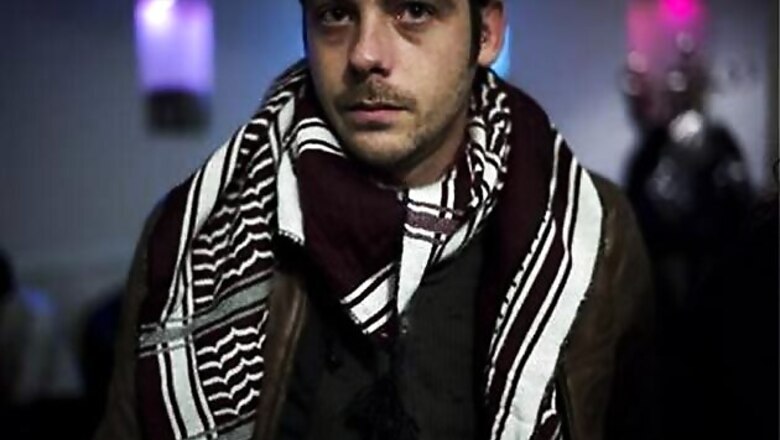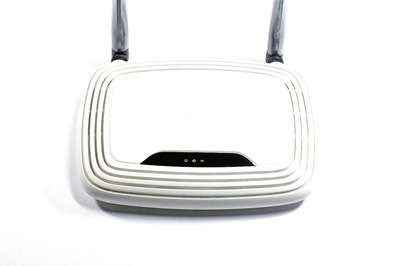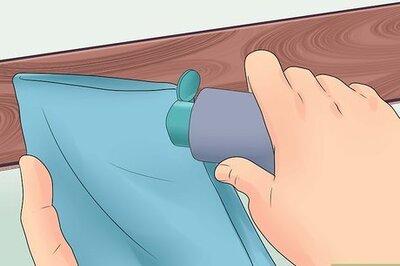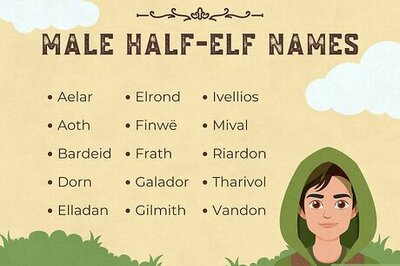
views
Amman: Syrian President Bashar al Assad's forces rained rockets and bombs down on opposition-held neighbourhoods of the city of Homs on Wednesday, reducing buildings to rubble and killing more than 80 people, including two Western journalists.
The barrages marked an intensification of a nearly three-week offensive to crush resistance in Homs, one of the focal points of a nationwide uprising against Assad's 11-year rule, and prompted further international condemnation.
More than 60 bodies, both rebel fighters and civilians, were recovered from one area of Homs' Baba Amro neighbourhood after an afternoon bombardment, adding to 21 killed earlier in the day, activists said.
"Helicopters flew reconnaissance overhead then the bombardment started," Homs activist Abu Abei told Reuters.
Videos uploaded by opposition activists showed smashed buildings, deserted streets, and doctors treating wounded civilians in primitive conditions in Baba Amro, the main target of Assad's wrath.
French President Nicolas Sarkozy described the deaths of the two journalists, French photographer Remi Ochlik and American Marie Colvin of Britain's Sunday Times, as an assassination and said the Assad era had to end.
"That's enough now," Sarkozy said. "This regime must go and there is no reason that Syrians don't have the right to live their lives and choose their destiny freely. If journalists were not there, the massacres would be a lot worse."
The two journalists were killed when the house in which they were staying after sneaking over the Lebanese border into Homs was hit by rockets.
Sunday Times editor John Witherow said the journalists may have been deliberately targeted.
"Given (Syrian security forces') attitude towards the media, their hostility ...then it is quite reasonable to assume that they were targeting any journalists there," he told the BBC.
The last dispatch from Colvin - a veteran war reporter who wore a trademark black eye-patch since being wounded in Sri Lanka in 2001 - described the misery inside Baba Amro.
Women and children were crammed together into a basement, huddled in fear and a two-year-old child had died in front of her, she reported on British radio.
Britain's foreign office summoned the Syrian ambassador to London to stress the "grief" felt over the deaths of Colvin and Ochlik, and demanded that British photographer Paul Conroy, injured in the same attack, receive medical treatment.
Reporter Edith Bouvier for French newspaper Le Figaro and Paris-based photographer William Daniels were also wounded in the strike on the Homs house, which global advocacy group Avaaz said had been occupied by journalists and opposition activists.
Bouvier suffered severe injuries to her hip and thigh and was at risk of bleeding to death without urgent medical care, said a member of Avaaz, which has been working with journalists and activists inside Syria.
"We are desperately trying to get her out, doing all we can in extremely perilous circumstances," the source said.
The Syrian Network for Human Rights said government forces killed a total of more than 80 civilians in Homs on Wednesday, mostly in bombardments on Baba Amro, a Sunni Muslim district opposed to Syria's Alawite ruling class.
Several hundred people have been killed in the daily bombardments by the besieging forces using artillery, rockets, sniper fire and Soviet-built T-72 tanks.
A spokeswoman for the UN High Commissioner for Human Rights Navi Pillay condemned the shelling of civilian areas and said the Syrian army appeared "to have sharply increased the use of artillery and other heavy weaponry."
Residents fear Assad will subject the city to the same treatment as his late father Hafez inflicted on the rebellious town of Hama 30 years ago, when 10,000 were killed.
Ground forces have held off from entering opposition areas as fighters allied to the opposition are ready to take them on.
The army is blocking medical supplies and electricity is cut off 15 hours a day, activists say. Hospitals, schools and shops are shut and government offices have also closed.
A Lebanese official who is close to the Syrian government said Assad wants to batter Homs into submission before a referendum this Sunday on a new constitution.
Assad and his allies Russia and China say the referendum, to be followed by multi-party elections, would satisfy demands for reform as a way to resolve the crisis. Western powers have dismissed it and the Syrian opposition has called for a boycott.
"President Assad wants to finish the Homs situation by Sunday to prepare for the constitutional referendum. Then he will turn to Idlib," the Lebanese official told Reuters in Beirut.
HUMANITARIAN CRISIS
The devastation in Homs has caused outcry but Wednesday's carnage only showed how helpless Western powers are in their efforts to stop the bloodshed.
The United States, which so far has been against military intervention in Syria, hinted however that if a political solution was impossible it might have to consider other options.
"We do not believe that adding to the militarisation of Syria is the right approach," White House spokesman Jay Carney told reporters on Wednesday, but he reiterated that Washington was not "ruling actions out in the future."
The worsening humanitarian situation in Homs and other embattled towns will dominate "Friends of Syria" talks in Tunis on Friday involving the United States, European and Arab countries, Syria's neighbour Turkey and other nations clamouring for Assad to halt the violence and relinquish power.
In an effort to bring relief to hungry and bloodied civilians in Homs, the International Committee of the Red Cross was in talks with the Syrian government and opposition figures on Wednesday to clinch a pause in the fighting.
Russia, Syria's main arms supplier, said it was seeking safe passage of aid convoys to civilians trapped in the violence. France also appealed to Assad to halt the onslaught to allow safe passage for aid.
UN humanitarian chief Valerie Amos will head to Syria soon in an attempt to secure access for aid workers seeking to deliver emergency relief to people trapped in conflict zones, the United Nations said on Wednesday.
RED CROSS APPEAL
ICRC President Jakob Kellenberger held talks in Geneva with Basma Kodmani, a senior official of the main opposition Syrian National Council (SNC), about its initiative for a daily two-hour cessation of hostilities.
Kodmani said the SNC wanted at least three safe passages for humanitarian convoys into battered Syrian cities - from Lebanon into Homs, from Jordan into Deraa and from Turkey into Idlib.
ICRC spokeswoman Carla Haddad said she was unable to say if and when a ceasefire deal might be clinched.
"The situation is difficult and we are worried it is deteriorating," she told Reuters on Wednesday. "Everybody is focused on Homs but we shouldn't turn a blind eye to what is happening in other areas."
Army bombardments on the town of Khan Sheikhoun, north of Homs on the Damascus-Aleppo highway in Idlib province, killed two people on Wednesday, the London-based Syrian Network said.
Elsewhere in Idlib, seven people, including a five-year-old boy, were killed by gunfire during security force raids, according to the Syrian Observatory for Human Rights.
In Moscow, Russia said it was working on ensuring the secure transit of humanitarian aid but safe corridors themselves were not a good idea because they might lead to further violence.
Although some say support around Assad is crumbling and the military is tiring, others say he could hang on for many months more before he joins Libya's Muammar Gaddafi, Egypt's Hosni Mubarak and Tunisia's Zine al-Abidine Ben Ali on the list of deposed Arab leaders, if he does at all.
There are also fears the revolt could flare into a religion-based civil war and spread across the volatile Middle East.



















Comments
0 comment